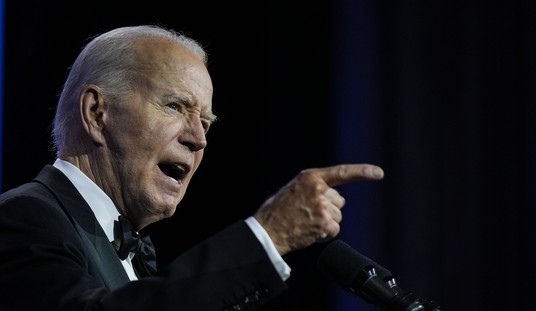WASHINGTON – A Senate report accused three big Wall Street banks of engaging in unfair trading practices in the commodities markets and putting the U.S. financial system at risk.
The investigation found that three major Wall Street banks’ involvement in physical commodities, such as oil, coal, and aluminum, was far more widespread than previously known and gave them an unfair advantage in the raw-materials markets.
The 396-page report describes how Goldman Sachs, J.P. Morgan Chase & Co., and Morgan Stanley have broken down the traditional barrier between commercial activities and banking by dabbling in lucrative but risky activities that pose legal and financial threats to the firms. The firms did so by influencing prices, gaining trade advantages with non-public information, and engaging in risky activities like uranium trading, according to the two-year bipartisan probe.
The report discusses several reasons why these activities could create problems.
J.P. Morgan exceeded restrictions on copper holdings by defining it as a precious metal despite its common use in industrial applications. This allowed the firm to accumulate copper holdings without the normal size limits that apply to other metals.
Morgan Stanley’s involvement with oil and gas at its peak included 55 million barrels of oil storage and 100 oil tankers. It also included the formation of shell companies run by the firm’s employees that would build and operate a compressed natural gas facility in Texas.
In 2010, Goldman Sachs purchased Metro Trade Services International, a Detroit-based warehouse company that stores aluminum, copper, and other base metals, and stacked the company’s board of directors exclusively with Goldman executives that, along with warehouse executives, approved of practices that caused further delays.
The report shows that Metro paid millions of dollars in incentives for firms to store their metal in its warehouses. This allowed Metro to engage in “merry-go-round” transactions, moving stored metal from one warehouse facility to another. These transactions tied up Metro’s ground transportation systems and created substantial delays for other clients.
Since Goldman bought the company, Metro’s warehouses have accumulated up to 85 percent of the U.S. aluminum storage market. The wait to withdraw metal increased from about 40 days to more then 600 days, reducing aluminum availability and tripling the price of storage and delivery, according to the report.
The long wait led to record surcharges for storing and shipping aluminum in the U.S. Those costs are tracked by a pricing system called the Midwest Premium that recently hit an all-time high of 23.5 cents per pound.
The report also argues that Metro executives shared market-sensitive information with Goldman traders that “benefitted their trading strategies.”
The Senate Permanent Subcommittee on Investigations, the panel overseeing the probe, held last week a two-day panel on the report.
The first hearing centered on the report’s findings that Goldman Sachs manipulated aluminum markets.
Sen. Carl Levin (D-Mich.), the subcommittee’s chairman, spent most of the three-hour hearing last week criticizing Goldman’s practices in the commodities market.
“If you liked what Wall Street did for the housing market, you’ll love what they’re doing for commodities,” Levin said. “Some of the same people who brought us the mortgage-backed security – and with it the term ‘toxic asset’ and the recent financial crisis – now dominate the commodities futures market.”
Goldman’s warehouse operations were being manipulated in a way that affected the price of aluminum for consumers, Levin said, at a time when Goldman was also “expanding its own trading in aluminum and aluminum-related financial products.”
Goldman officials defended their actions before the panel and said they were acting on orders from clients. Jacques Gabillon, a Goldman executive, said the bank’s policies ensured there was “not a single instance in which confidential information went to metals traders at Goldman Sachs.”
Levin produced memos and emails showing that sensitive Metro data went to Goldman executives, including two senior executives in the commodity unit.
“I don’t think we can rely on a private policy to ensure this doesn’t happen,” Levin said. “The stakes are too great. As far as I’m concerned, it should be illegal to share this kind of information. When you have a huge economic interest on the other side of ethical interests, too often the ethical interests give way.”
The subcommittee’s probe also depicted the U.S. Federal Reserve as failing to stop the firms from holding commodity assets well in excess of regulatory limits. At times, the Fed was simply unaware of how much oil, copper, and aluminum banks were stockpiling.
Under current Fed rules, banks that engage in commodities trading must hold capital to absorb potential losses from these activities.
The findings put additional pressure on the Fed as it considers rules that would reduce or restrict Wall Street banks’ role in physical raw-materials markets.
Fed Governor Daniel Tarullo told the panel curbs under consideration include ownership limits, restricting how much revenue can be derived from commodities and requiring Wall Street banks to increase capital.
“We are focusing on the risk to safety and soundness presented by specific activities and on whether those risks can be appropriately and adequately mitigated,” Tarullo said at the subcommittee’s second hearing.
The report references a 2012 study conducted by the Fed, which found that the banks had capital and insurance coverage shortfalls for their commodity units of as much as $15 billion. That means that if each bank experienced a disaster similar to the Deepwater Horizon explosion or the Exxon-Valdez oil spill, it would not have enough funds to cover its losses.
This, in turn, might lead to another taxpayer bailout to avoid any consequential damage to the U.S. financial system, the report says.
All three firms have started to reduce their commodities unit and investments amid the scrutiny and revenue from the businesses has dropped considerably from peak years.
Morgan Stanley produced $912 million of revenue from its commodities unit and investments in commodity businesses in 2012, down from $3 billion in 2008. Goldman Sachs’ commodity revenue fell for three straights years, from $3.4 billion in 2009 to $1 billion in 2012.
The investigation also focused on other investments by the financial firms, such as J.P. Morgan’s buying spree of power plants, Morgan Stanley’s investments in jet fuel, and Goldman’s purchase of a Colombian coalmine that was briefly shuttered due to protests.









Join the conversation as a VIP Member